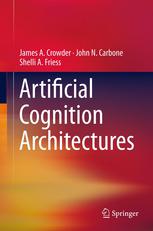

Most ebook files are in PDF format, so you can easily read them using various software such as Foxit Reader or directly on the Google Chrome browser.
Some ebook files are released by publishers in other formats such as .awz, .mobi, .epub, .fb2, etc. You may need to install specific software to read these formats on mobile/PC, such as Calibre.
Please read the tutorial at this link: https://ebookbell.com/faq
We offer FREE conversion to the popular formats you request; however, this may take some time. Therefore, right after payment, please email us, and we will try to provide the service as quickly as possible.
For some exceptional file formats or broken links (if any), please refrain from opening any disputes. Instead, email us first, and we will try to assist within a maximum of 6 hours.
EbookBell Team

0.0
0 reviewsThe goal of this book is to establish the foundation, principles, theory, and concepts that are the backbone of real, autonomous Artificial Intelligence. Presented here are some basic human intelligence concepts framed for Artificial Intelligence systems. These include concepts like Metacognition and Metamemory, along with architectural constructs for Artificial Intelligence versions of human brain functions like the prefrontal cortex. Also presented are possible hardware and software architectures that lend themselves to learning, reasoning, and self-evolution